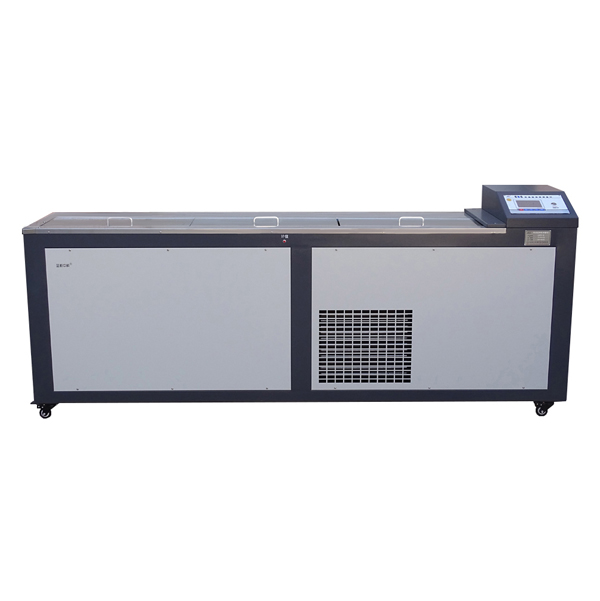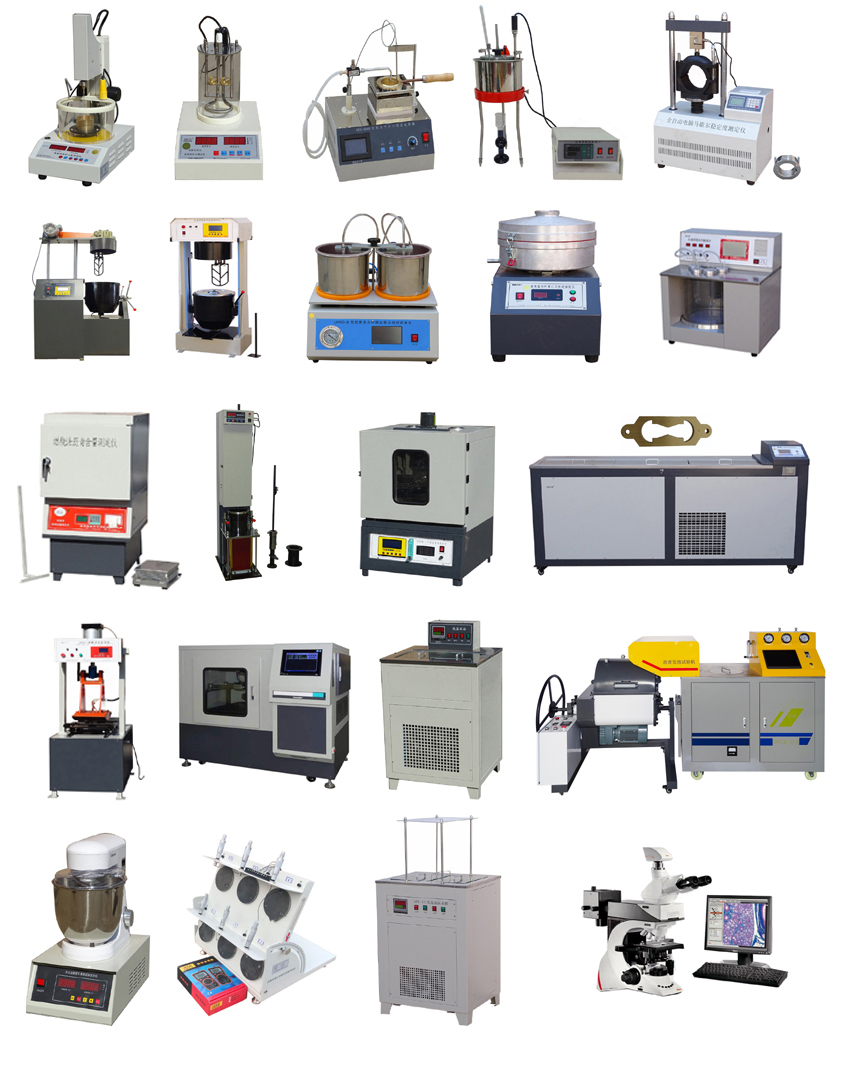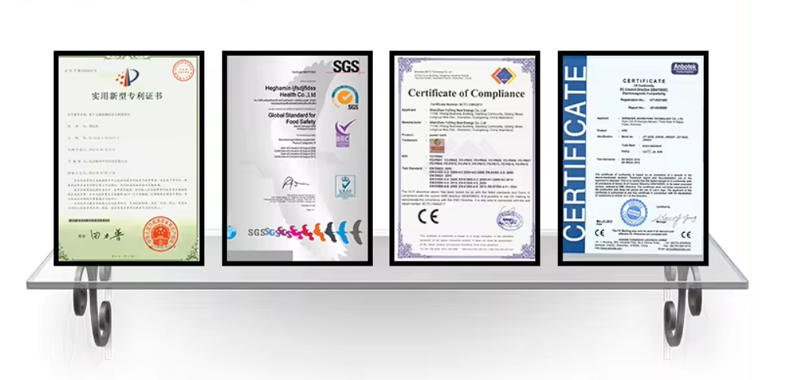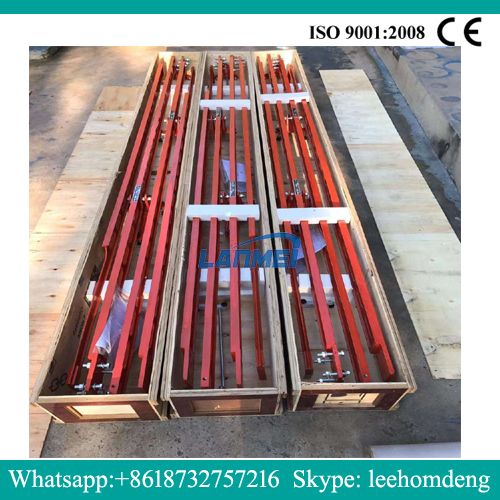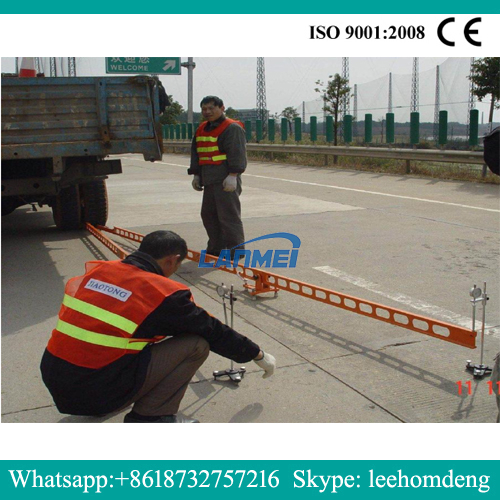Type CNC Low-Temperature Asphalt Elongation Tester Lab
Type CNC Low-Temperature Asphalt Elongation Tester
This instrument is designed in accordance with the requirements stipulated in the “Test Procedures for Asphalt and Asphalt Mixture in Highway Engineering” (JTG E20-2011) of the People’s Republic of China, specifically the “Asphalt Ductility Test” (T 0605-2011). It is suitable for determining the length of petroleum asphalt when it breaks under specified conditions and at a certain temperature, stretched at a certain speed, as per the methods specified in GB/T 4508-2010 or T 0605-2011, with the result expressed in millimeters.
I. Main Technical Features
Adopting an automated design concept, the test tank contains no lead screws, guide rails or other devices. Specimen installation is extremely convenient, with a maximum tensile length of 1.5 meters.
2. The constant temperature water bath adopts a double-layer design of 304 stainless steel, featuring a circulating water bath and a still water bath. The water temperature in the still water bath is uniform without any flow.
3. Servo motor drive design ensures smooth and synchronous stretching throughout the process, with uniform speed and no jitter. The elongation display is highly accurate.
After the stretching is completed, the stretcher can quickly return to its original position automatically and accurately.
5. It adopts LCD screen display. The high-precision LCD temperature controller has a temperature control accuracy of 0.1℃. It is controlled by touch keys, waterproof, durable and easy to clean.
II. Main Technical Indicators and Parameters
Working power supply: AC220V (-5% to +10%), 50Hz.
2. Measuring range: 1.5m (±1mm).
3. Heating form: Electric heater heating.
4. Heating power: 1500W.
Refrigeration power: 1000W
6. Bath liquid circulation: The circulation pump circulates the bath liquid.
7. Temperature control range: adjustable from 1℃ to 50℃.
8. Temperature control accuracy: ±0.1℃.
9. Stretching speed: Two settings available, 10 mm/min and 50 mm/min.
Measurement accuracy: ±1mm.
Environmental temperature: -10℃ to +45℃.
Relative humidity: ≤ 85%.
14. Dimensions: 210 x 44 x 98 cm (length x width x height).
15. Overall power consumption: no more than 4100W.
Low temperature asphalt elongation tester: ensuring the durability of asphalt in cold conditions
The Low Temperature Asphalt Elongation Tester is an important tool in the field of civil engineering and materials science, specifically used to evaluate the performance of asphalt mixtures under low temperature conditions. Since asphalt is widely used in road construction and maintenance, understanding its performance in cold weather is crucial to ensure the service life and safety of roads.
As temperatures drop, asphalt becomes brittle, leading to cracking and other forms of damage that compromise the integrity of the pavement. The Low Temperature Asphalt Elongation Tester evaluates the ductility of asphalt binders at low temperatures, providing valuable data on the material’s ability to withstand stress from environmental factors. The test method involves controlled cooling of an asphalt sample and then measuring its elongation when it is pulled apart.
The test results of the low temperature asphalt elongation tester are crucial for engineers and contractors to select the right asphalt mix for specific climate conditions. By understanding the elongation properties of different asphalt formulations, they can make informed decisions to improve the performance of pavements in cold regions. This not only helps reduce maintenance costs, but also improves road safety by minimizing the risk of pavement damage.
Additionally, the Low Temperature Asphalt Elongation Tester plays an important role in the development of new asphalt technologies. As researchers work to create more resilient and sustainable materials, the testing equipment is able to provide necessary feedback to improve formulations and enhance overall performance.
In summary, the Low Temperature Asphalt Elongation Tester is an important instrument for evaluating the durability of asphalt in cold conditions. Its ability to measure elongation properties at low temperatures ensures that engineers can design and implement asphalt mixes that stand the test of time, ultimately creating safer and more reliable roads.





